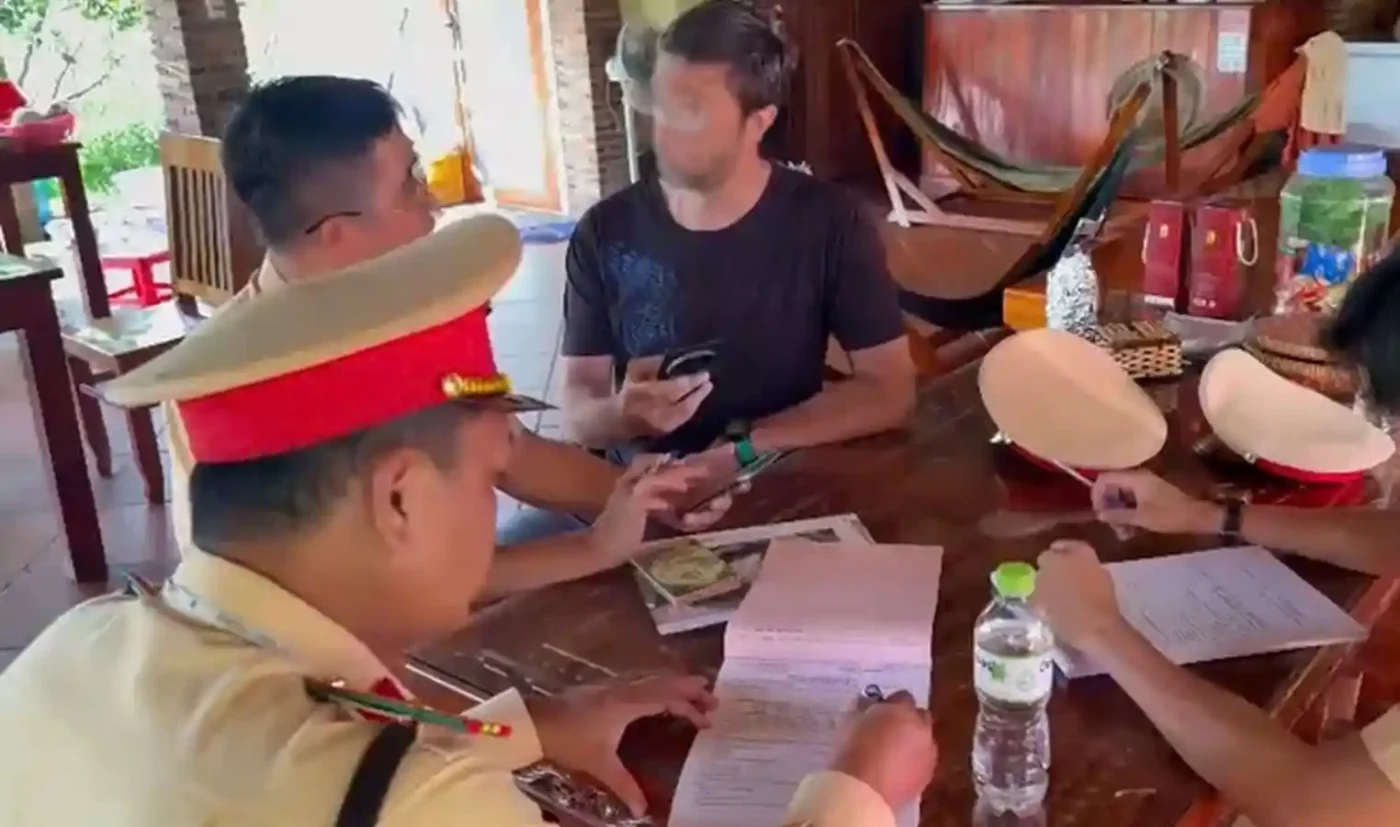In the idyllic island city of Phú Quốc, a recent incident involving a Russian tourist has reignited concerns over traffic safety and the responsibilities of both foreign visitors and local rental businesses. On a busy Sunday evening, traffic police identified and penalized Vanov Aleksandr, a 45-year-old Russian national, for dangerous driving behavior that could have endangered lives on Highway 973 in Bãi Thơm Commune.
A Reckless Ride on Highway 973
At approximately 5pm on May 3, 2025, Aleksandr was filmed riding a rented motorbike without a helmet, with both hands off the handlebars, weaving through traffic in Xóm Mới Hamlet. The video, which quickly circulated among local authorities, prompted a swift response from Phú Quốc’s traffic police. After verification, Aleksandr was identified as the offender, temporarily residing in Ông Lang Village, Cửa Dương Commune. He admitted to multiple violations, including not wearing a helmet, reckless driving, and lacking a valid Vietnamese driving license.
The motorbike, bearing license plate 77E1 – 344.21, was traced to a rental business at No. 100 Trần Hưng Đạo Street in Dương Đông Ward. Following the incident, police issued an administrative violation record to Aleksandr and temporarily detained the vehicle for ten days, in accordance with Vietnamese law. The vehicle owner, Phạm Thị Diễn, was also summoned to explain her role in renting the motorbike to an unqualified individual, a violation under Clause 1, Article 56 of the Law on Road Traffic Safety and Order.
A Growing Concern for Tourist Safety
Phú Quốc, a popular resort island in southern Vietnam’s Kiên Giang Province, attracts thousands of foreign tourists each year with its stunning beaches and laid-back charm. For many, renting a motorbike offers a cheap and flexible way to explore the island’s winding roads and hidden coves. However, this convenience comes with significant risks, particularly when renters lack the necessary skills or legal qualifications. Traffic police report that many foreign tourists either do not possess a valid Vietnamese driving license or are unfamiliar with local traffic laws, leading to frequent violations such as ignoring helmets, running red lights, and driving under the influence.
These behaviors pose a dual threat, endangering not only the tourists themselves but also other road users. Recent records from Phú Quốc indicate a troubling rise in accidents involving foreign nationals, some of which have resulted in severe injuries or fatalities. The incident with Aleksandr serves as a stark reminder of the potential consequences of such recklessness, prompting authorities to issue a renewed call for compliance with traffic regulations among visitors living, working, or traveling on the island.
Responsibility of Rental Businesses
Beyond individual accountability, the role of motorbike rental businesses has come under scrutiny. Many operators on the island have been criticized for failing to verify renters’ qualifications before handing over vehicles. In Aleksandr’s case, the owner of the motorbike was questioned for neglecting to check his driving credentials, an oversight that violates Vietnamese traffic safety laws. Similar cases have led to penalties for other rental businesses in Phú Quốc, highlighting a broader issue of lax oversight in the industry.
Traffic police have urged organizations and individuals providing rental services to strictly check the legal conditions of their customers, particularly ensuring that renters hold a valid driving license appropriate for the vehicle type in Vietnam. This measure, authorities argue, is essential not only to comply with the law but also to demonstrate a commitment to community safety. Without such diligence, rental businesses risk contributing to preventable accidents that tarnish the island’s reputation as a safe tourist destination.
Navigating Cultural and Legal Differences
For many foreign tourists, navigating Vietnam’s traffic landscape can be daunting. The country’s roads, often bustling with a chaotic mix of motorbikes, cars, and pedestrians, operate under rules that may differ significantly from those in their home countries. Helmets, for instance, are mandatory under Vietnamese law, yet some visitors either disregard this rule or are unaware of its importance. Similarly, the requirement for a Vietnamese driving license—or an international driving permit recognized in Vietnam—is often overlooked by tourists eager to explore at their own pace.
Cultural misunderstandings also play a role. In some countries, motorbike riding may be less regulated, leading visitors to assume similar leniency applies in Vietnam. However, as Phú Quốc’s traffic police emphasize, ignorance of local laws does not exempt one from accountability. The challenge lies in bridging this gap through better education and outreach, ensuring that tourists are informed of their obligations before they hit the road.
Looking Ahead: A Safer Phú Quốc
As Phú Quốc continues to grow as a global tourist hub, balancing hospitality with safety remains a pressing concern. The incident involving Vanov Aleksandr underscores the need for a multi-faceted approach to traffic safety, one that holds both individuals and businesses accountable while addressing the root causes of violations. Enhanced awareness campaigns, stricter enforcement of rental regulations, and clearer communication of legal requirements could go a long way in preventing future incidents.
For now, the island’s residents and visitors alike watch as authorities reinforce their commitment to road safety. Whether these measures will curb the rising tide of traffic violations remains to be seen, but one thing is clear: in a paradise like Phú Quốc, a moment of recklessness can have far-reaching consequences.
















